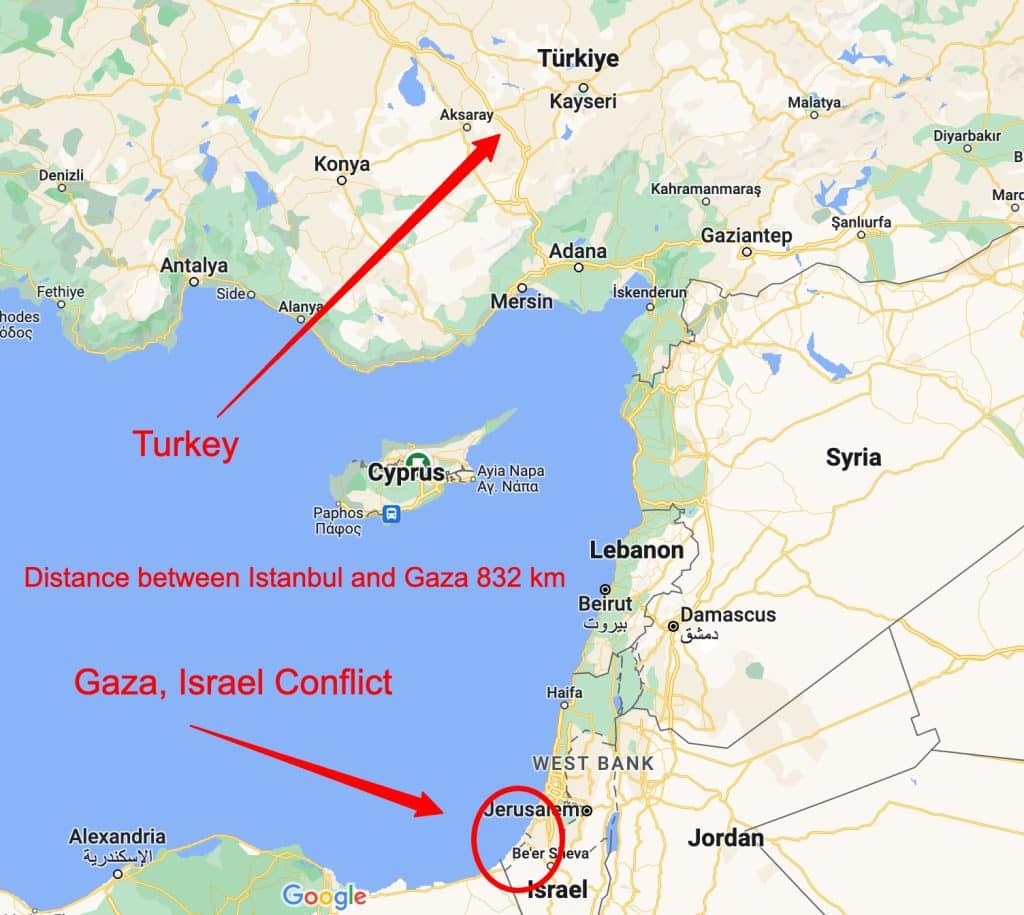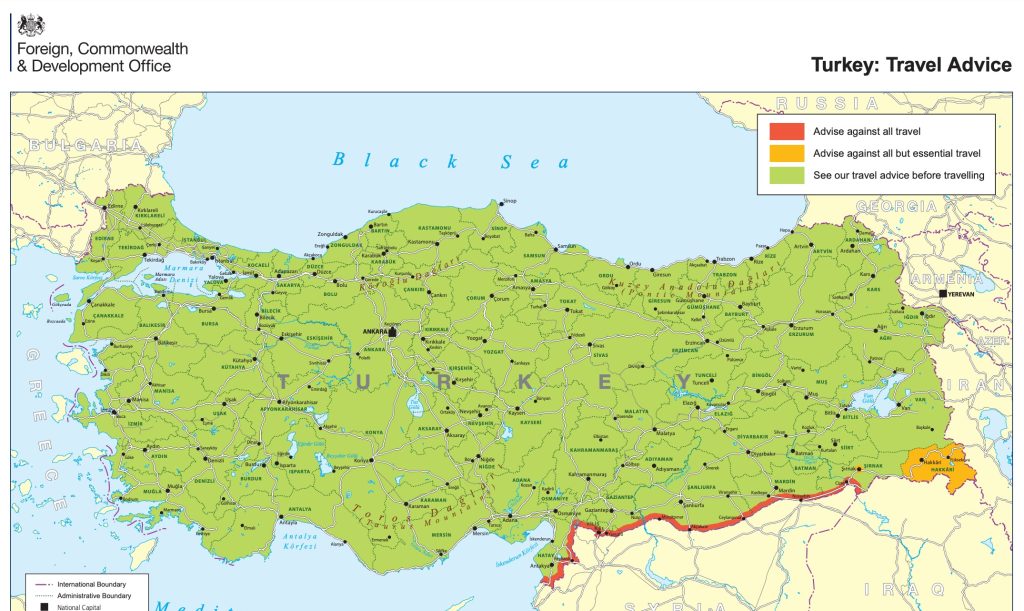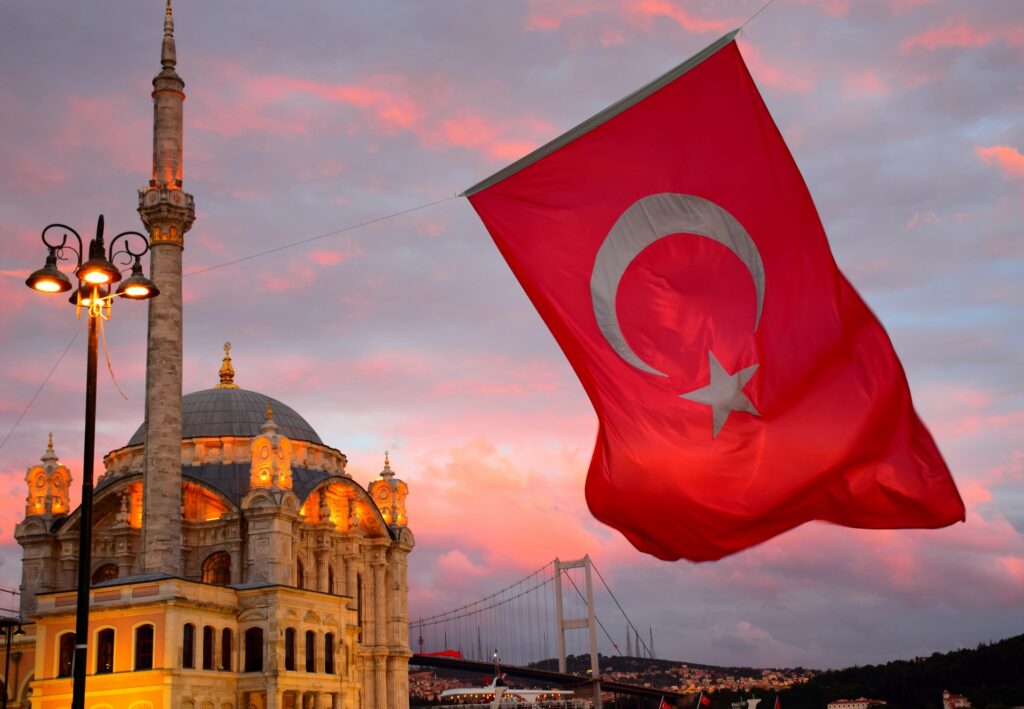Turkey is a year-round destination that attracts tourists. However, with the current unrest in Gaza and Israel, Turkey’s neighbors, and travelers to Turkey may be concerned about the safety of their trip. Here’s what you should know if you’re thinking about traveling.
Is Turkey impacted by the ongoing conflict between Israel and Hamas?
There have been no signs that the crisis is affecting Turkey. According to the Israeli Ambassador to Turkey, Irit Lillian, the attacks have shown why Hamas has no business in Turkey or elsewhere.
At an AK Party conference, the nation’s president, Tayyip Erdogan, stated that “all parties must refrain from aggressive actions” and that “we call on all parties to exercise restraint.” He also stated that Turkey will use all its forces to contain hostilities and put an end to violence.
U.S. Travel Advisory for Turkey
First and foremost, because of terrorism and arbitrary detentions, travel to Turkey should be done with increased caution. The country has been ranked at level 2 “Exercise Increased Caution”
However, for the same reason, the U.S. State Department urges travelers to stay away from all trips to the provinces of Sirnak and Hakkari as well as any location within six miles (10 kilometers) of the Syrian border.
In addition, terrorist threats persist in Turkey, where extremist groups are actively planning potential attacks. These threats pose a significant risk to both locals and travelers.
Attackers may strike with little or no notice, directing their actions toward various high-profile targets, including tourist spots, transportation centers, markets, government buildings, hotels, restaurants, places of worship, parks, cultural events, educational institutions, airports, and other public areas.
UK Travel Advisory
FCDO advises against all travel to parts of Turkey:
The FCDO recommends avoiding all travel within a 10km radius of the Syrian border. City of Sirnak
The FCDO suggests that only essential travel be considered for the city of Sirnak. Province of Hakkari
The FCDO recommends that only essential travel should be undertaken in the province of Hakkari.
4 general safety tips for Turkey
Turkey’s political instability
Parts of the country bordering Syria are at greater risk of armed conflict, terrorism, and civil unrest, so travelers are generally warned against traveling there. While there has not been a similar wave of devastating terrorist attacks as in 2016, threats in key tourist areas are still possible.
Turkey’s street crime
Travelers should be more aware of common scams and exercise caution when it comes to their belongings and surroundings, although there is no indication that the current economic downturn is affecting crime rates.
Turkey’s wildfires
Aside from the direct threat to personal safety, increased concentrations of particulate matter in the air caused by smoke can pose a health risk, especially to individuals with pre-existing lung conditions such as asthma. It is advisable to monitor the location of forest fires before you travel and consider planning your visit to Turkey during a time of year when forest fires are less common.
Cappadocia’s adventure travel risks
The allure of Cappadocia lies in its captivating hot air ballooning experiences, offering breathtaking vistas of the unique landscapes. Although incidents are infrequent, it’s advisable to peruse reviews and seek insights from fellow travelers for trusted operators. Ensuring you adhere to the relevant safety protocols is essential to guarantee secure and enjoyable ballooning and other adventures.
Conclusion: It is safe to travel to Turkey?
Travel to Turkey remains relatively safe despite the ongoing conflict between Israel and Hamas, as the country’s popular tourist destinations are far from the conflict zone. Visitors should, however, stay informed about the latest developments and adhere to local advisories to ensure a secure and enjoyable trip.




